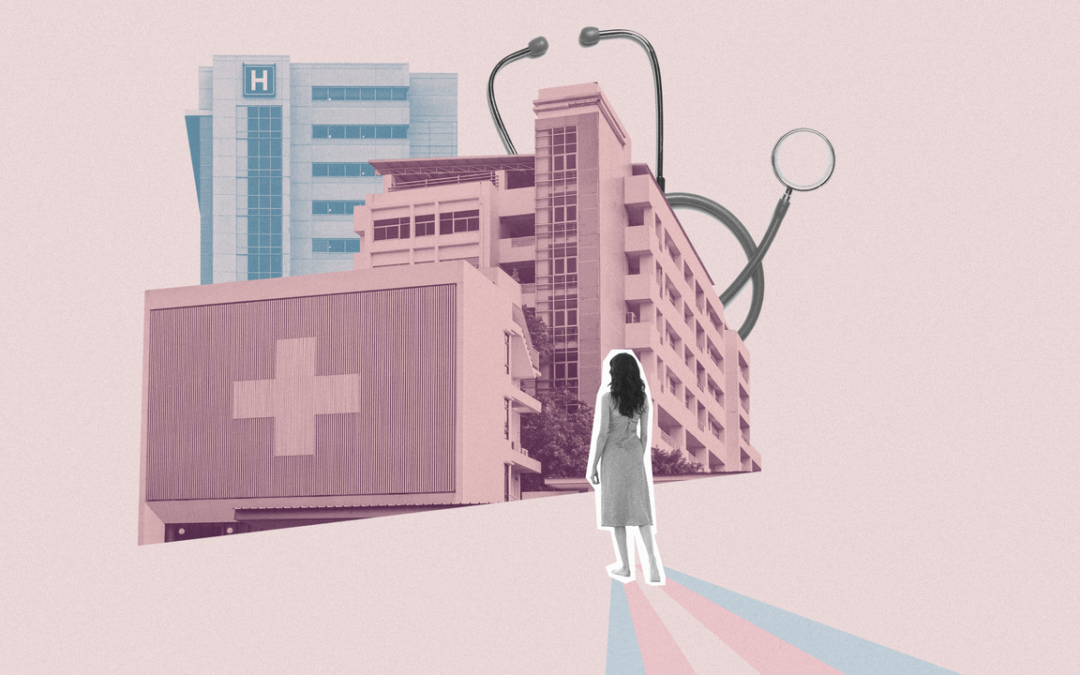“There’s no way I would teach what I do for that because [other doctors] would be killing people,” Dr. Mayer says. “I see so much bad work because there is no board for facial feminization surgery (FFS). [Douglas K.] Ousterhout and I were the fathers of facial feminization and we did things very differently [from other practicing physicians of the time],” he explains.
Dr. Mayer says he does many revisions because so few doctors understand how to perform facial feminization surgery correctly. “A good part of my practice is revision surgery,” he adds. “Because, unfortunately, there’s a lot of bad work out there.” He says FFS can involve frontal orbital reduction, where the forehead bone is contoured for a more feminine appearance, hairline lowering, cheek implants, and possible chin reduction and contour. Common types of “bad work” he sees are visible scars from hairline lowering and patients who have had their jaws overly reduced giving them a disproportionate “light bulb head” appearance.
The Urgent Need for More Training
In addition to all the hurdles transgender patients have to tackle to receive comprehensive care, what little access to gender-affirming care exists is in jeopardy in some states. A report from the UCLA Williams Institute estimates that “more than 58,000 transgender youth and young adults across 15 states” could lose access to care due to proposed laws such as Georgia’s GA HB401, which makes it a crime for doctors to prescribe puberty blockers to minors and Mississippi’s Senate Bill 2728, which restricts insurance coverage for transgender health care services for minors.
At a time when trans health care is politicized, trans people are opening up about the lifesaving benefits of these procedures. Chase Strangio, a New York City-based lawyer and transgender rights activist, took to Twitter to discuss how his top surgery impacted his life. “I had top surgery 13 years ago. There is not a day that goes by that I don’t think about how it was the best thing I have ever done for my survival. I also had orthopedic knee surgery at 14 and often regret it,” he tweeted.
Strangio had no surgical complications and said his quality of life has improved following top surgery. “If you think about how much our bodies impact our ability to interface with the world, and when you have severe dysphoria where parts of your body are inhibiting your ability to experience career successes, or academic successes, or sexual pleasure, romantic attachments, you know that obviously impairs your ability to function,” Strangio explains. “I was binding my chest and had for many years. It’s a very uncomfortable experience. I felt so much more alive and free [after surgery].” But he had to fly across the country to receive this level of care during a time when he says there were very few providers performing this procedure, something not every trans person can afford to do — or should have to.
The Future of Gender-Affirming Care
Today, the main focus of advancement in gender-affirming surgeries is in the space of masculinizing genital reconstruction surgeries, says Dr. Safer. Surgeons are trying to find new donor sites to harvest tissue for the construction of male genitalia while reducing telltale scars, he says. The future of trans health care looks promising as more physicians become knowledgeable about the unique needs of their patients and medical research continues to move forward.

